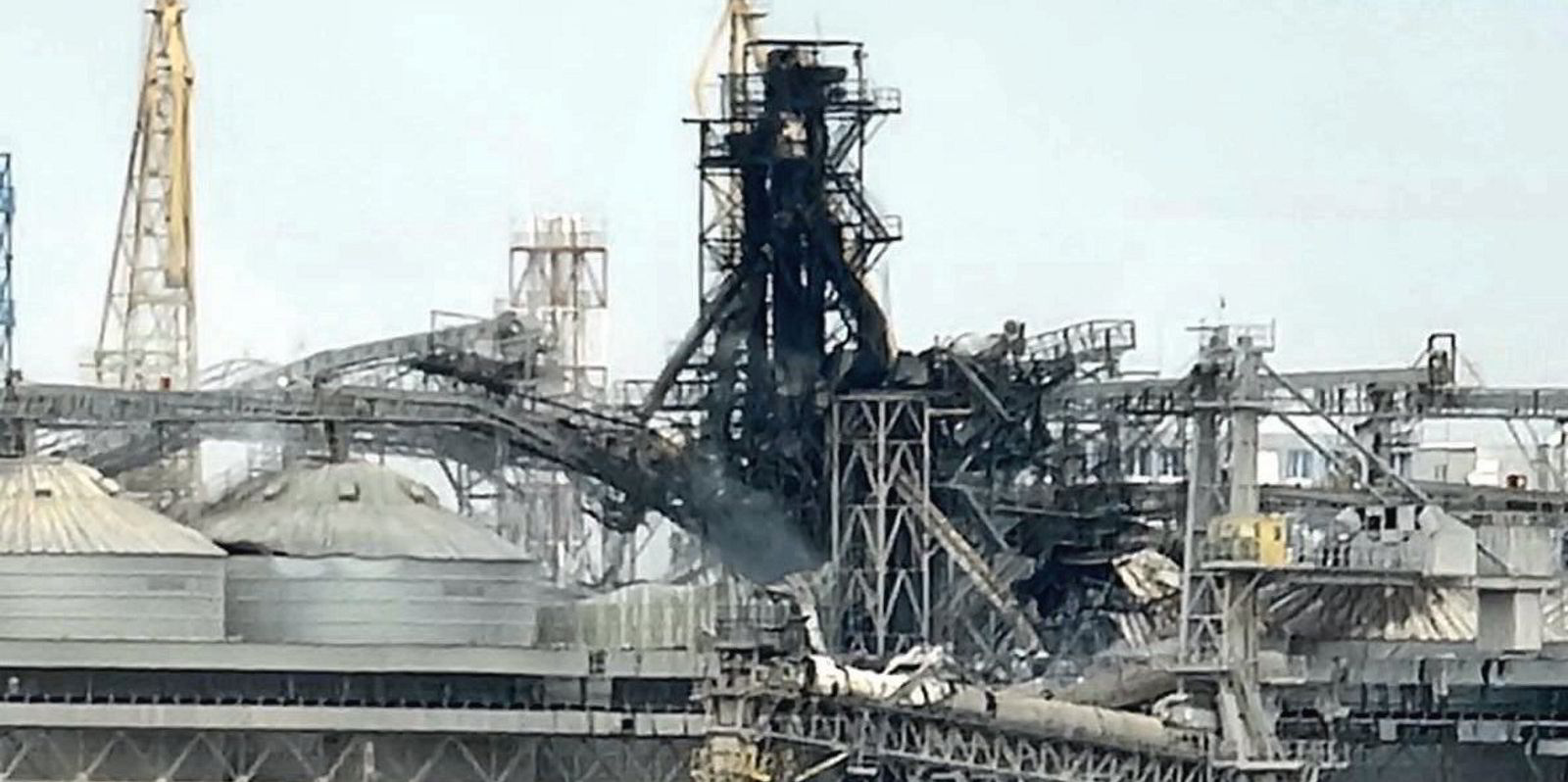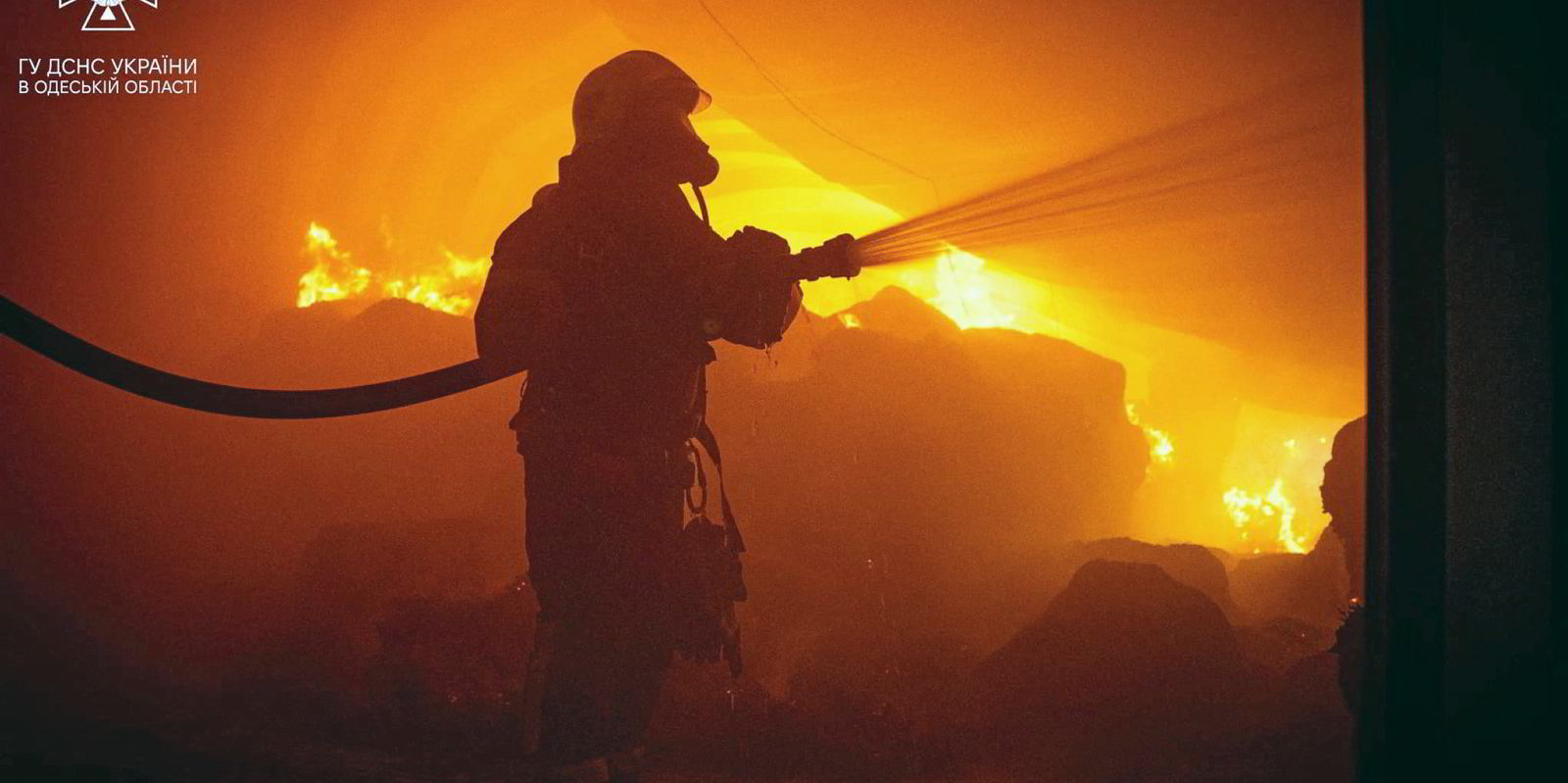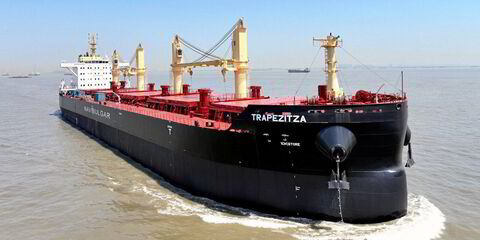One day after Russia imposed a naval blockade on Ukraine, small cargo vessels continue approaching the war-torn country’s southernmost waters at the mouth of the Danube River.
As TradeWinds reported on Wednesday, the Russian defence ministry warned shipowners and flag states that as of 20 July it will consider any cargo vessel approaching Ukraine as a potential military target.
To drive the point home, its forces attacked early on Thursday the major ports of Odesa and Chernomorsk for the third night in a row.
As a result, no more vessels are heading to that region — especially after Moscow on Monday pulled the plug on the Black Sea Grain Initiative (BSGI), the United Nations-protected seaborne export corridor for Ukrainian grain.
Ship tracker data, however, shows that smaller cargo ships are staying put, or even heading towards, waters near Ukraine’s southern border, where the Danube flows into the Black Sea.
That region has never been covered by the BSGI. But shipowners with an intimate knowledge of the region’s geopolitics have long been unconcerned at sending vessels there.
Their reasoning has been that Russia would not dare obstructing ship traffic there, given proximity with Nato member Romania.
Any missile or drone attack going awry would run the risk of hitting Romanian targets, thus drawing Nato directly into the conflict with Russia.
The same argument seems to be holding now. According to MarineTraffic, more than 50 small cargo ships were off Musura Bay on the Ukraine-Romania sea border on Thursday.
Very few ways out
Following Russia’s exit from the BSGI on Monday, Ukraine submitted to the International Maritime Organization a plan proposing an alternative route from Odesa to the Ukrainian port of Sulina by Musura Bay.
No ship, however, has used that particular corridor so far — most likely for fear of being attacked by Russia further north, near Odesa.
Ukraine has been separately urging the UN, the US, Turkey or any other party to provide security guarantees for a new edition of the BSGI that would not depend on Russian consent.
Neither Turkey nor the US, however, seems willing to entertain that prospect, for fear of getting directly involved in a war against Russia.
Asked by reporters on 17 July if the US were considering providing such guarantees, National Security Council spokesman Admiral John Kirby said: “You’re suggesting that we should just try to run a blockade … that’s not an option that’s being actively pursued.”
Asked the same question late on 19 July, White House press secretary Karine Jean-Pierre said she had nothing to add to Kirby’s statements.
This in effect leaves a combination of rail, road and Danube barges as the only way to get grain exports out of Ukraine.
Kirby, however, admitted that this will in no way fully replace the quantities that were able to be exported by sea.
In the meantime, the breakdown of the BSGI makes Russia’s own grain exports through the Sea of Azov more complicated as well.
A Ukrainian attack on the bridge of Kerch, which links Russia proper with the Russian-occupied province of Crimea that broke away from Ukraine in 2014, has led to a halt in ship traffic between the Sea of Azov and the Black Sea since 17 July.
To retaliate against the Russian blockade and to show that it can inflict damage as well, Ukraine issued its own warning to Russia-bound vessels on Thursday.





